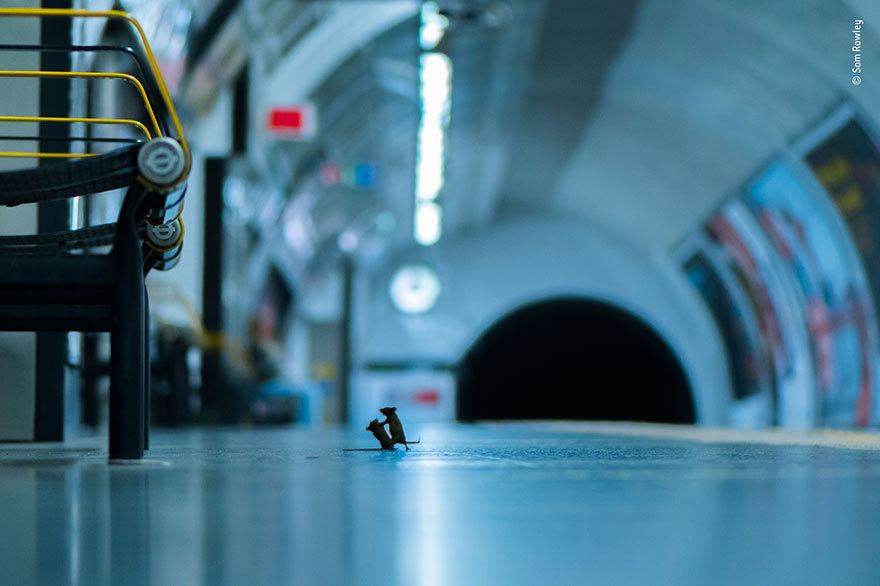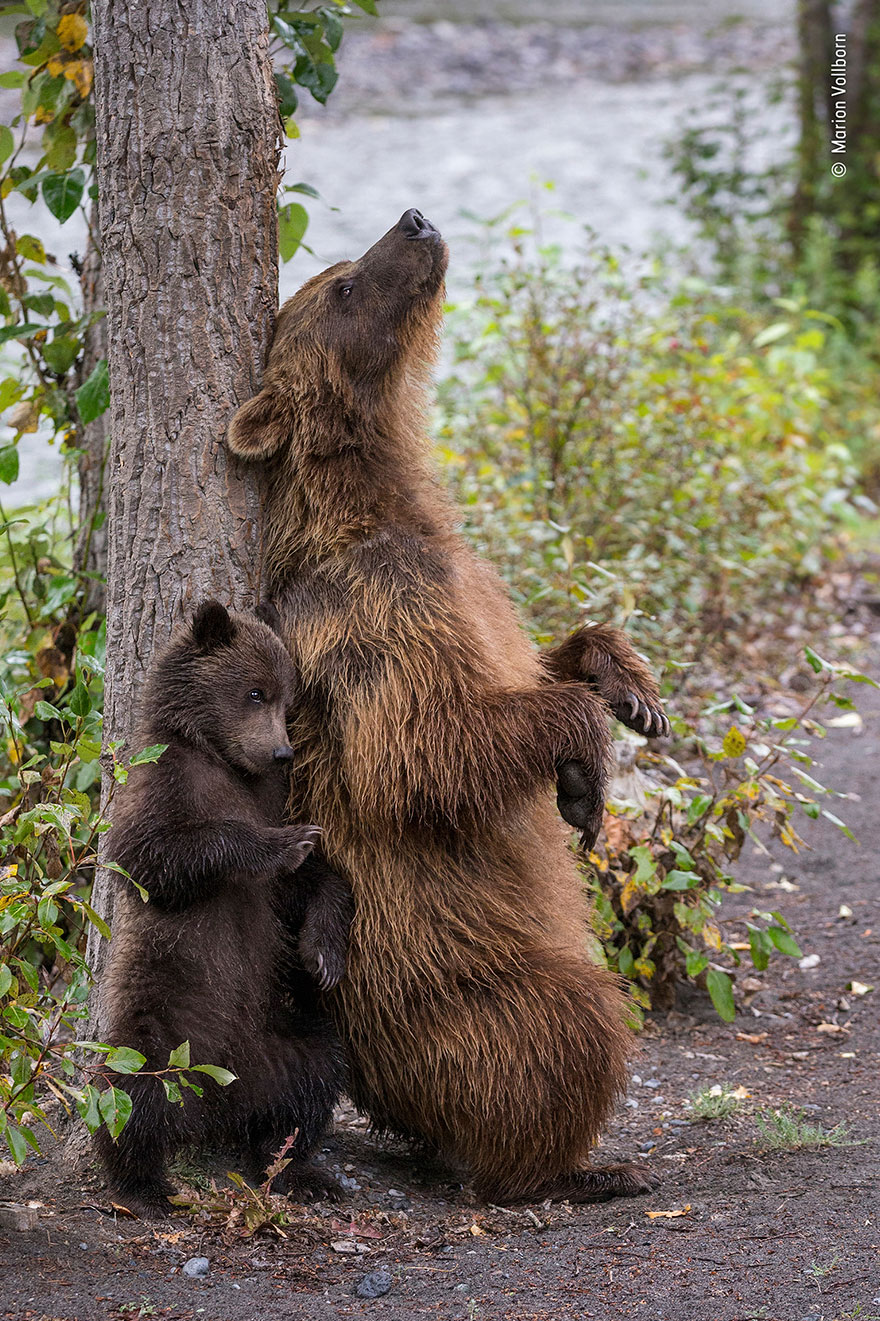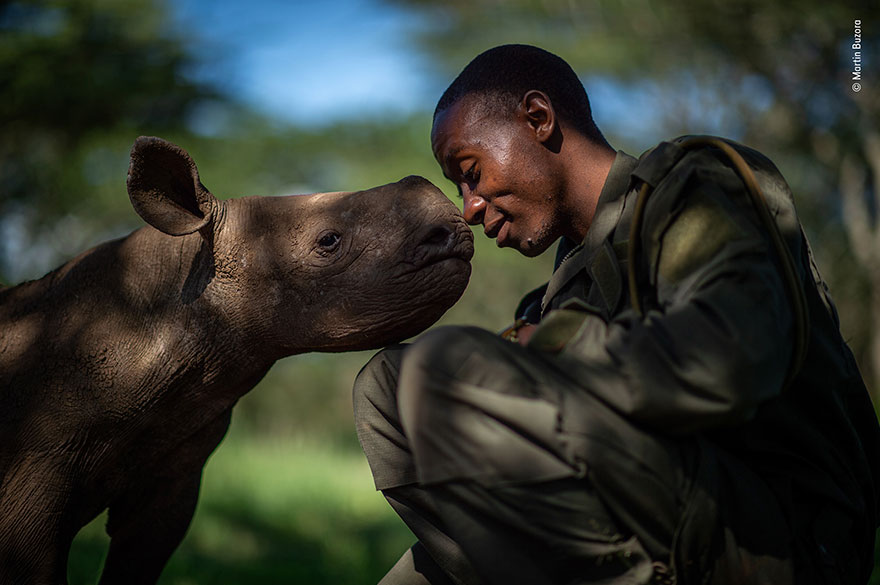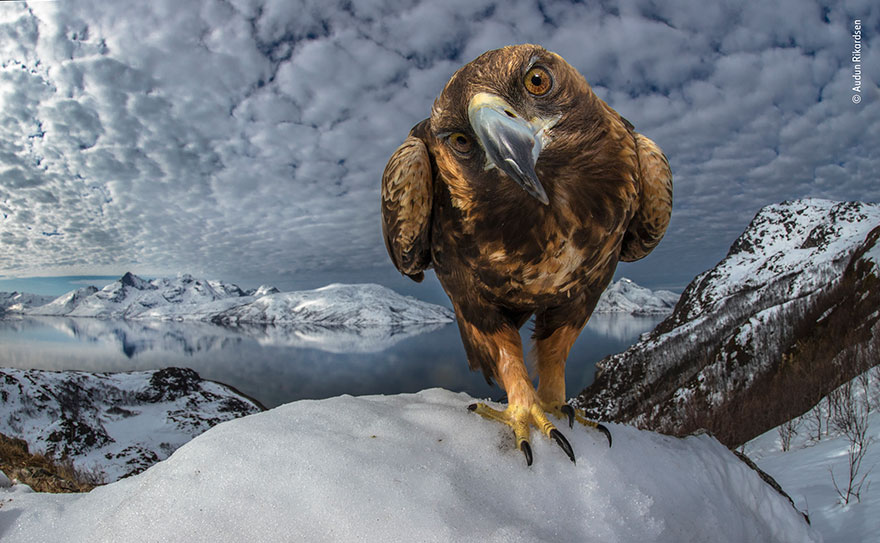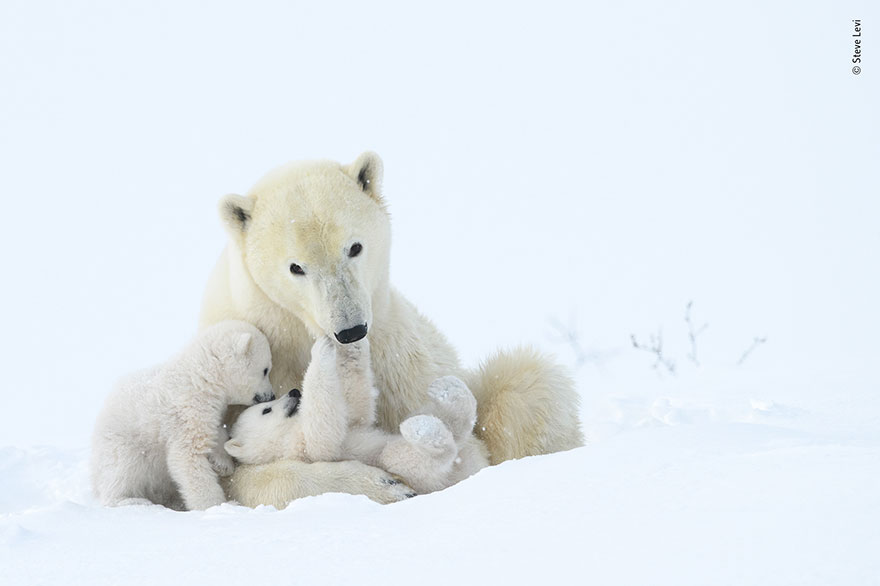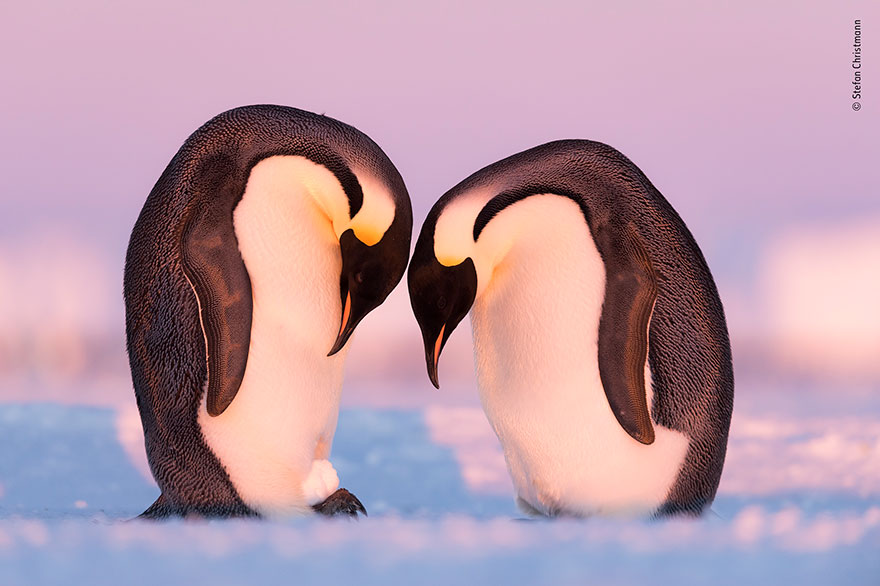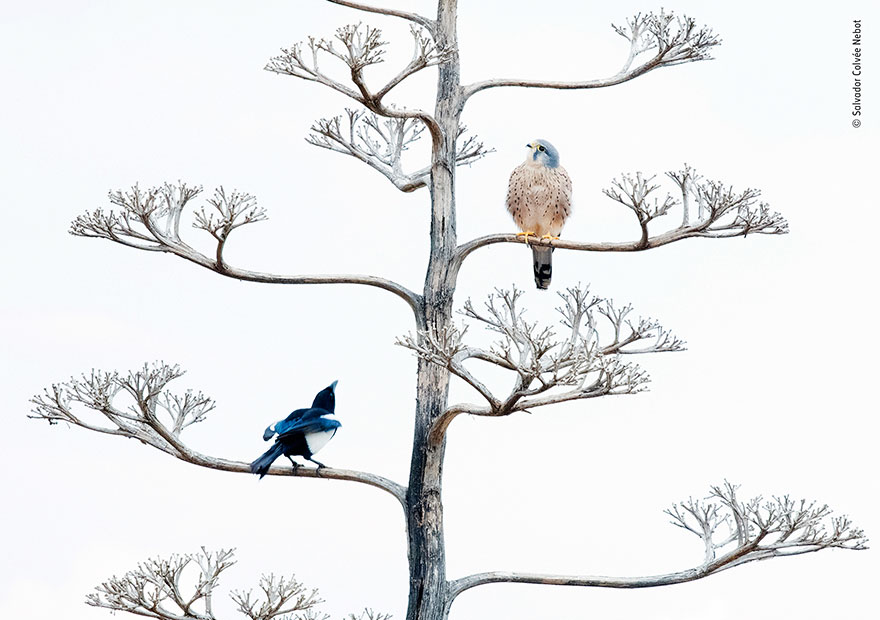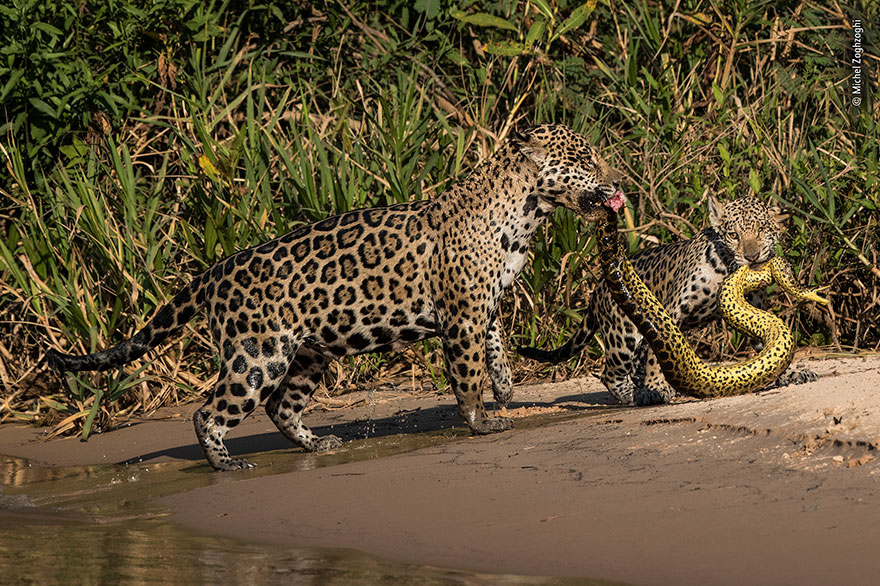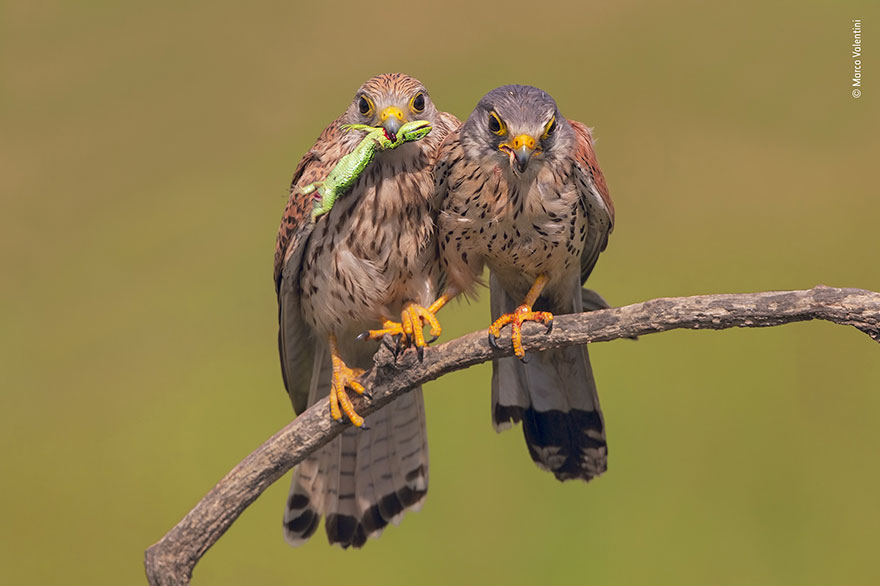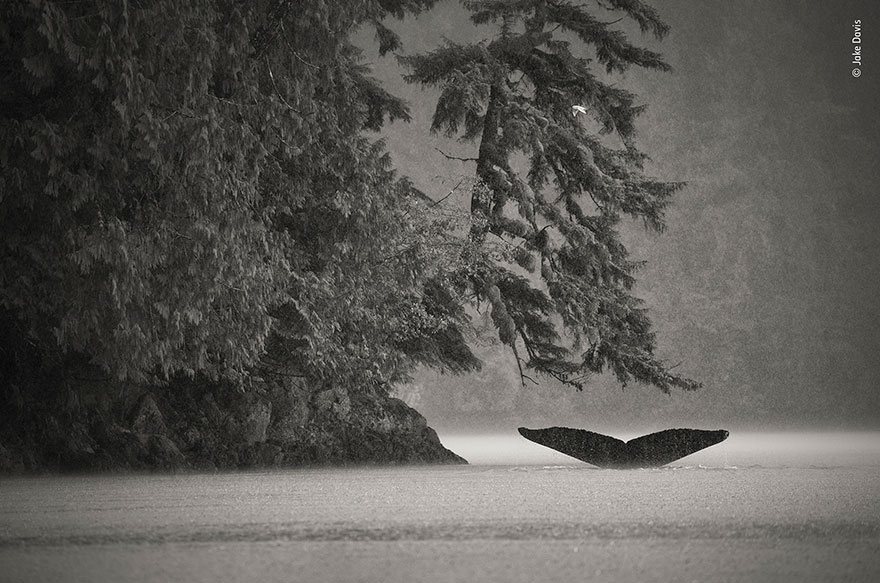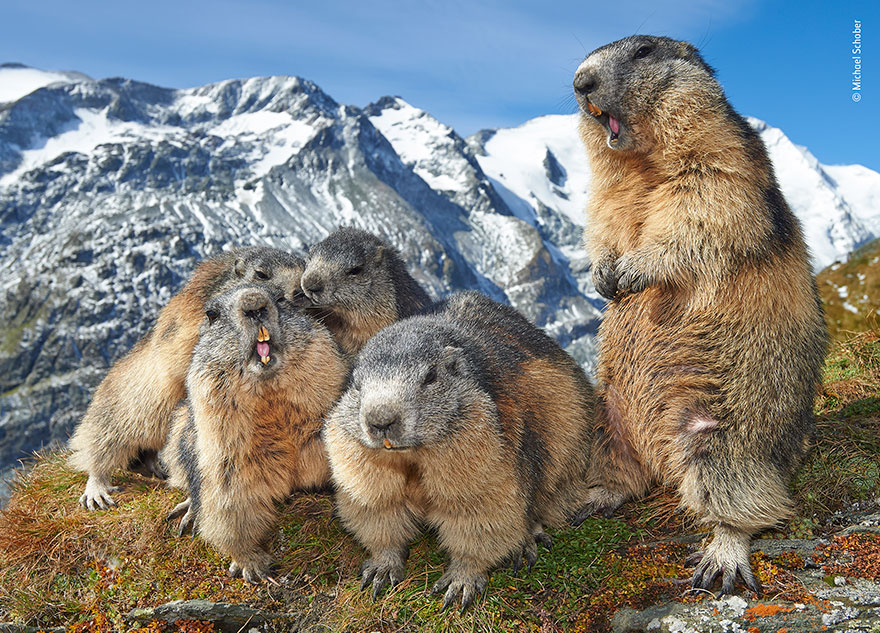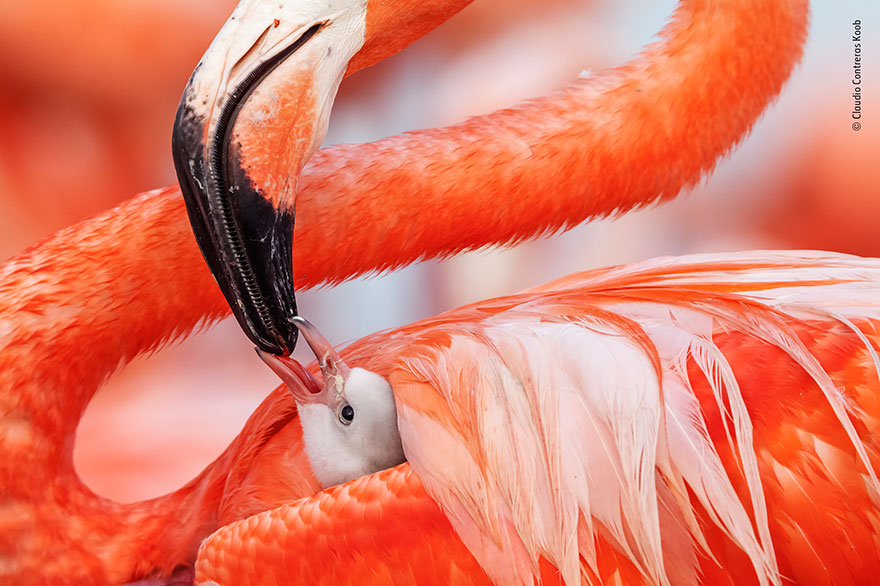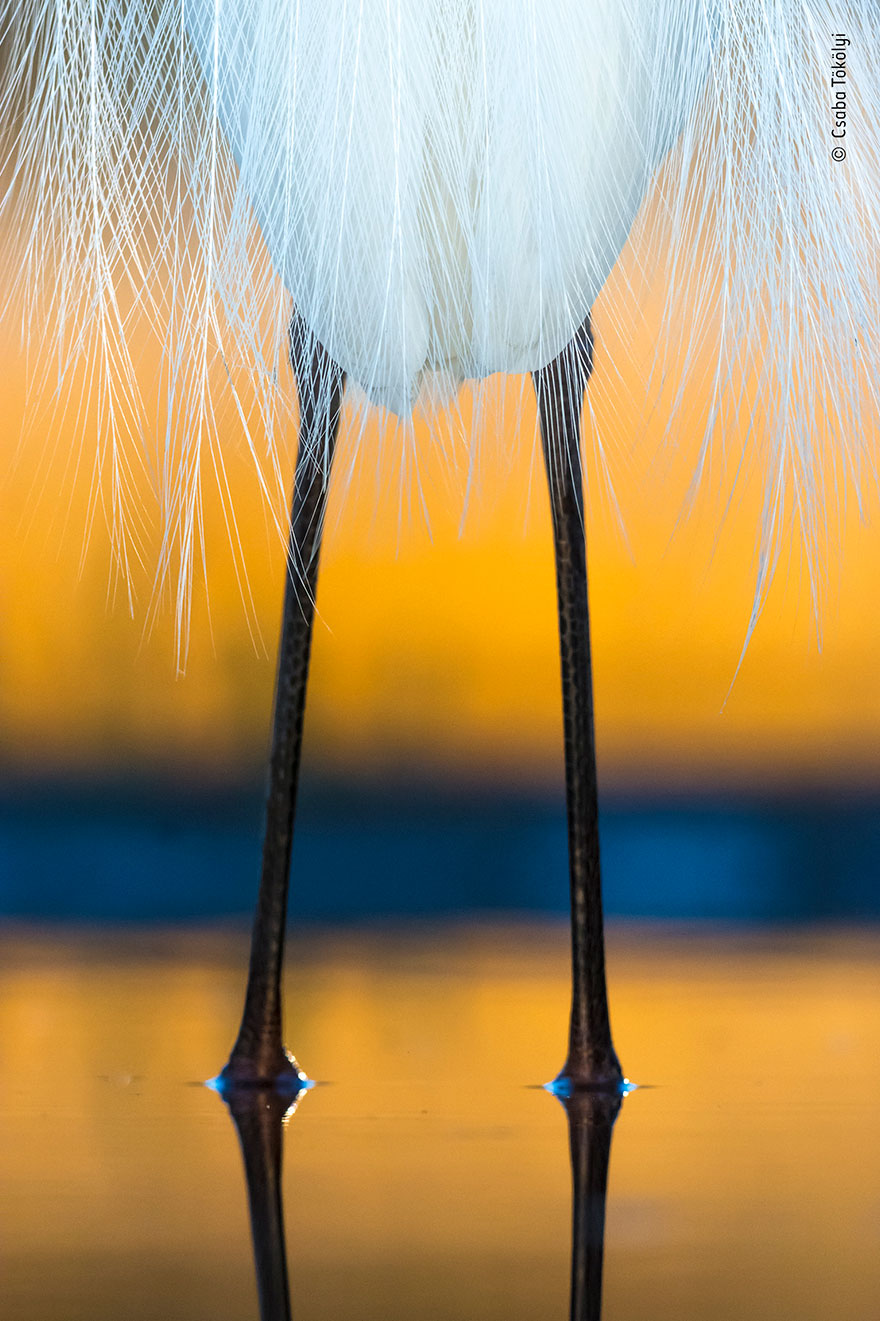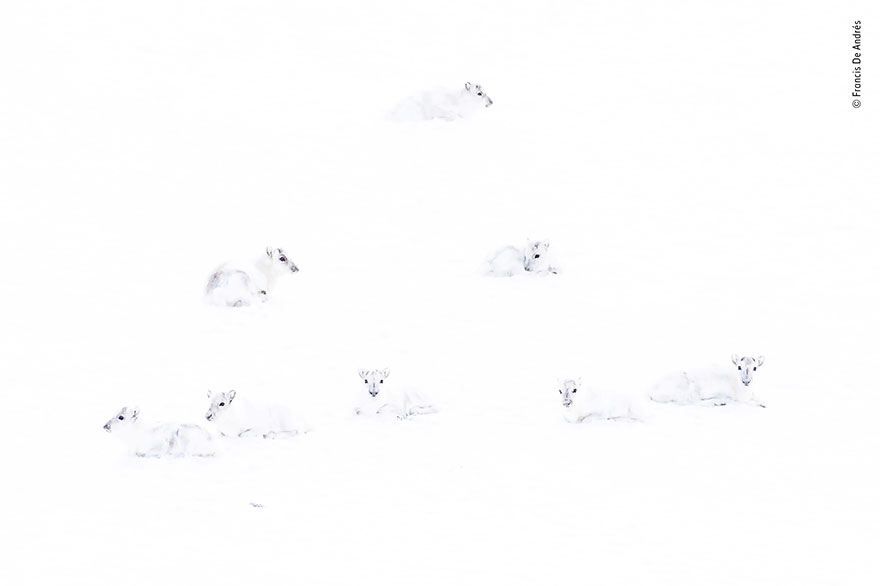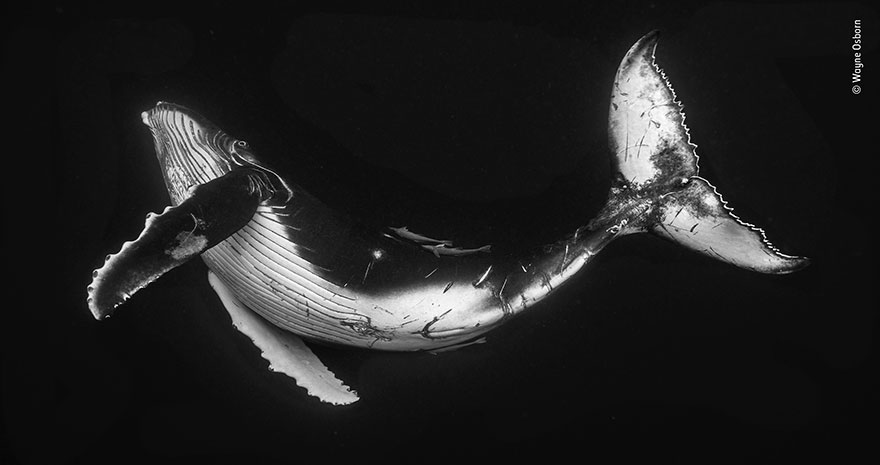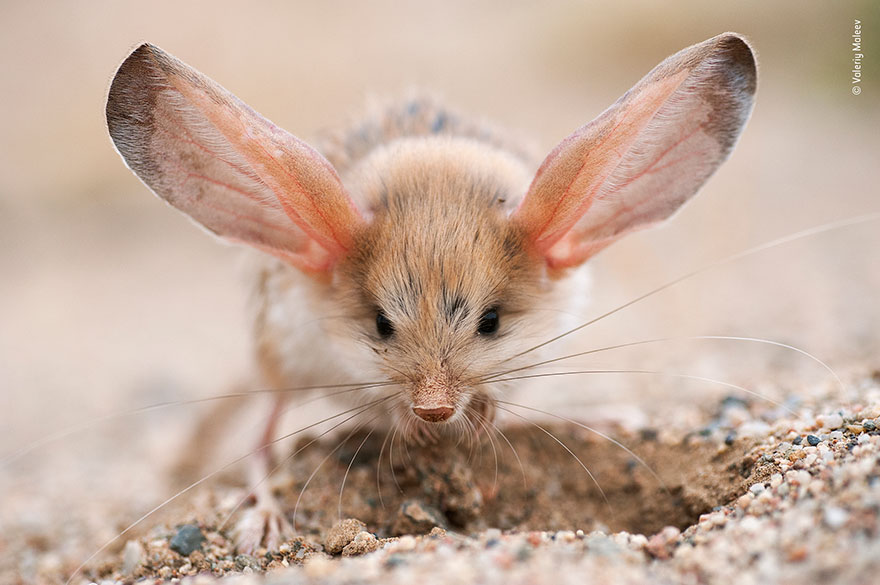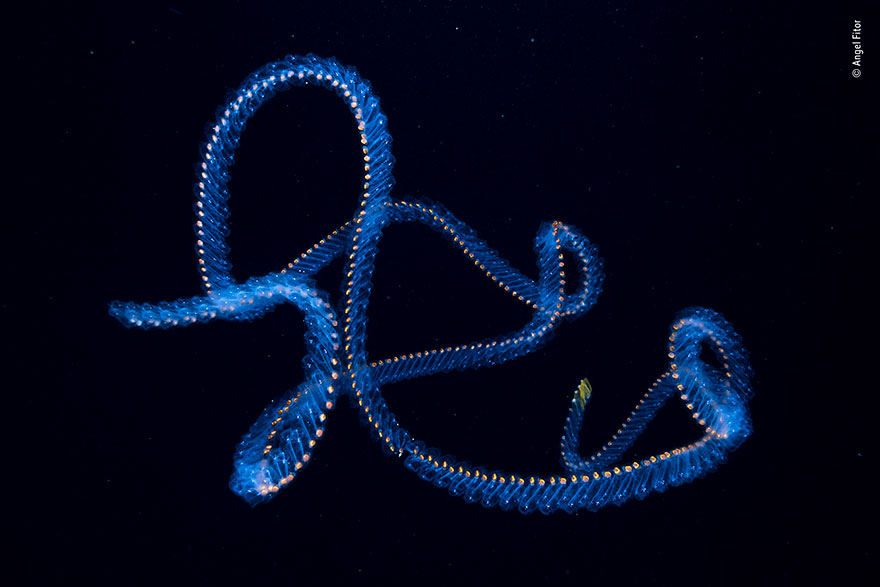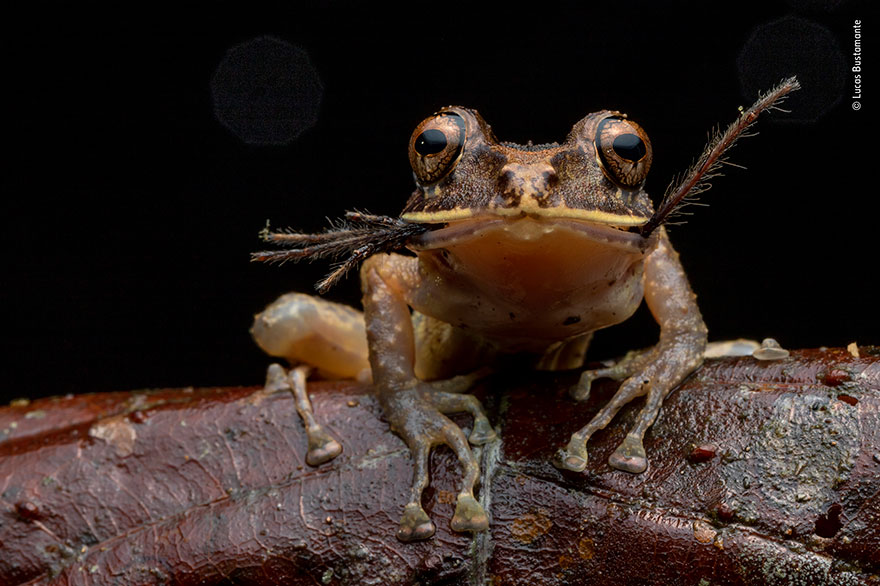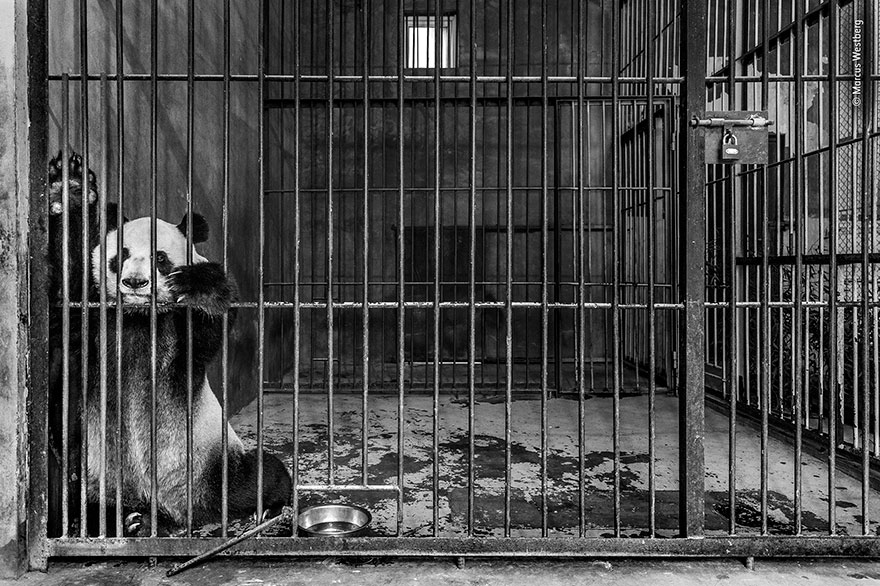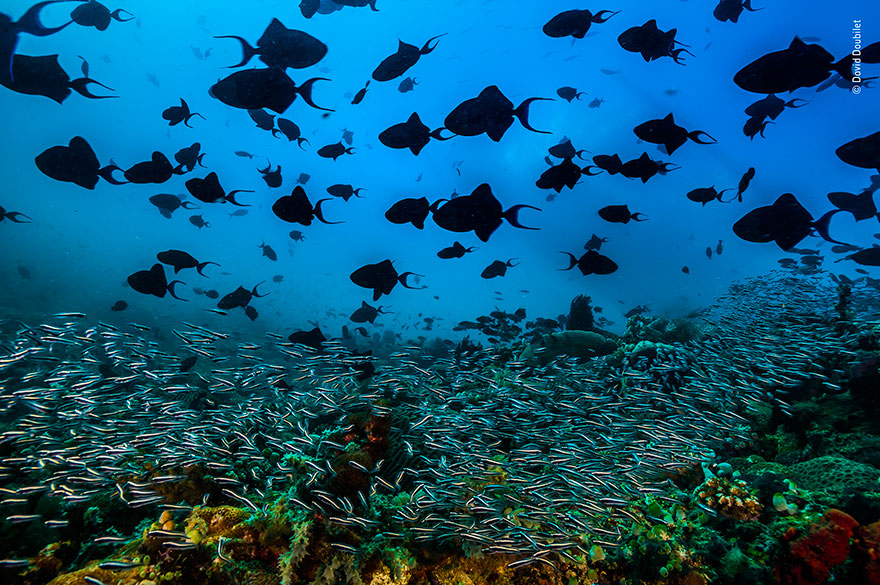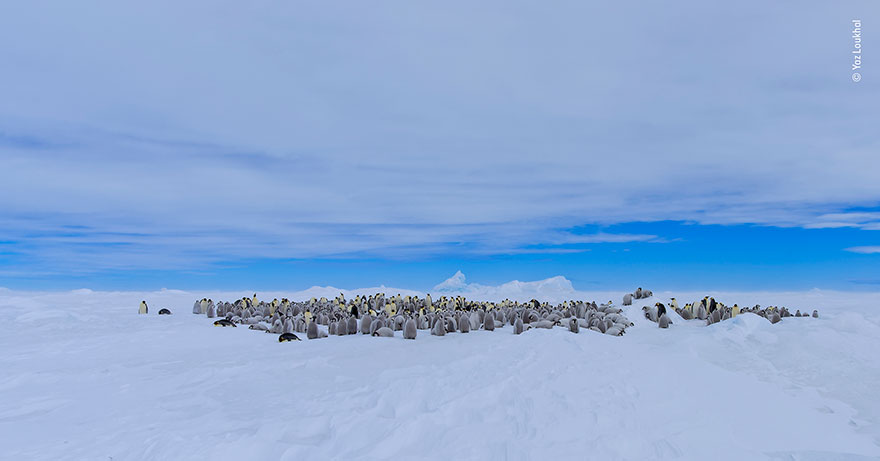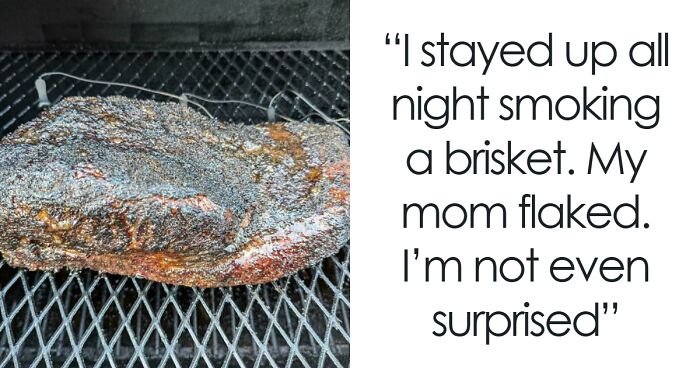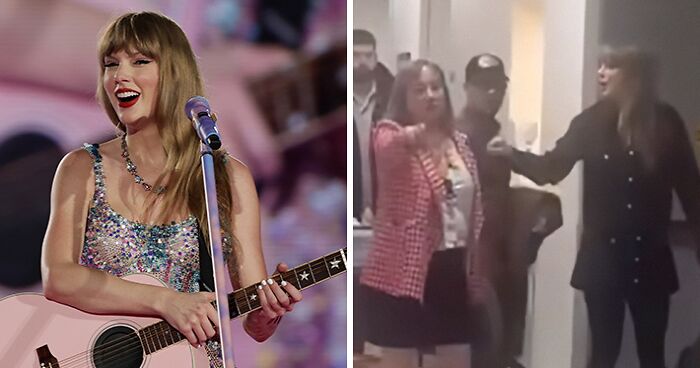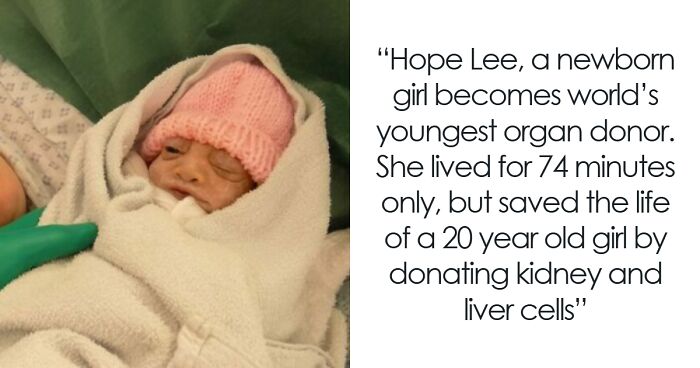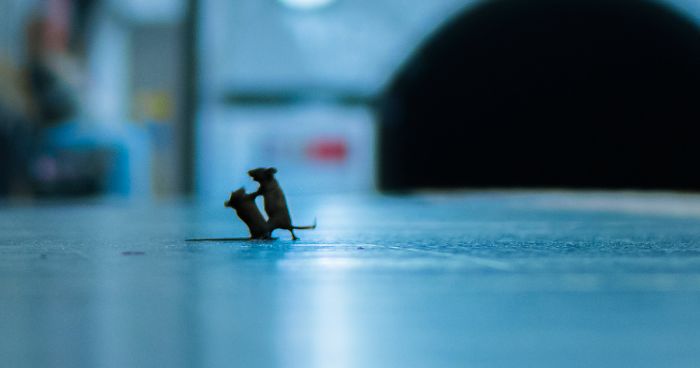
1.1Mviews
Here Are 25 Wildlife Photography Award Finalists And The Photos Are Amazing
Just a few months ago we found out who the best Wildlife Photographer of the year 2019 was and promptly congratulated Yongqing Bao with a well-deserved win. The professional photographer's winning picture titled “The Moment” showcases a young fox and a marmot in a moment of life and death. The hungry mother fox baring its teeth, the shock on the marmot’s face who just woke up from hibernation proved to be the best picture that won the recognition of the jury.
This time, the deciding factor in this photo contest is people and their votes. Wildlife Photographer of the Year contest just announced the 25 finalists of its LUMIX People's Choice Award and you can vote for the best wildlife photography shot. The Natural History Museum has handpicked a selection of photographs from all over the world that didn’t make it to the finals of the first competition and gave you the power to decide which one of these nature photos deserves the title of fan favorite.
The voting deadline is on Tuesday 4 February 2020, so you have plenty of time to think hard and decide. In the meanwhile, let’s take a look at the stunning photographs showcasing different aspects of wildlife. From wild animals hunting prey to animals in captivity, the images are a good reflection of the many aspects of our nature.
Bored Panda has reached out to a Museum spokesperson for additional information about the photography contest. They gladly answered some questions and gave additional insights. Turns out, this year's competition is 55th! "The competition attracts over 48,000 entries from 100 countries, highlighting its enduring appeal," they said.
This post may include affiliate links.
"Station Squabble", Sam Rowley, UK
Sam discovered the best way to photograph the mice inhabiting London’s Underground was to lie on the platform and wait. He only saw them fight over scraps of food dropped by passengers a few times, possibly because it is so abundant. This fight lasted a split second, before one grabbed a crumb and they went their separate ways.
"Winter's Tale", Valeriy Maleev, Russia
Valeriy encountered this Pallas’s cat while it was out hunting in the Mongolian grasslands – it was -42°C (-44°F) on that frosty day, but the fairy tale scene cancelled out the cold. Pallas's cats are no bigger than a domestic cat and they stalk small rodents, birds and occasionally insects.
The winners of the main competition (both the grand title as well as category winners) win a cash prize, however the LUMIX People’s Choice winner does not receive a monetary price. Even then, the media coverage and exposure from such an established contest is enough to attract thousands of entries!
"Mother Knows Best", Marion Vollborn, Germany
While on a bear watching trip to the Nakina River in British Columbia, Canada Marion spotted a grizzly bear and her young cub approach a tree. The mother bear started to rub against the tree trunk and was followed shortly by the cub, imitating its mother.
"The Surrogate Mother", Martin Buzora, Canada
Elias Mugambi is a ranger at Lewa Wildlife Conservancy in northern Kenya. He often spends weeks away from his family caring for orphaned black rhinos like Kitui here. The young rhinos are in the sanctuary as a result of poaching or because their mothers are blind and cannot care for them safely in the wild.
The Museum spokesperson expressed that it's quite a difficult task for the jury to pick the finalists, let alone winners. "The category winners and 100 images shown in the exhibition at the Natural History Museum capture the breath-taking beauty of the world’s flora and fauna, but of course it’s a very difficult task for the judges to select them from so many amazing pictures!" they exclaimed.
"Inquisitive", Audun Rikardsen, Norway
From a hide on the coast of northern Norway, it took Audun three years of planning to capture this majestic bird of prey in its coastal environment. After some time, the golden eagle became curious of the camera and seemed to like being in the spotlight.
"Tender Play", Steve Levi, USA
It was early March and Steve spotted this mother polar bear and her two cubs after 10 days of looking. They had recently left their birthing den in Wapusk National Park, Canada, to begin the long journey to the sea ice so their mother could feed. After a nap the cubs were in a playful mood.
"With the natural world facing the increasing pressure of human impact, climate change, biodiversity loss and habitat loss, an increasing number of entries reflect this," the spokesperson replied when asked about themes that stand out in the photographs. It is the photojournalism category that reflects that the most "as this category explores the effects of human impact and our complex relationship with wildlife". "The competition isn’t just about aesthetically beautiful photography – the winning images should depict nature in a way that reveals its truths," the spokesperson explained.
"Trustful", Ingo Arndt, Germany
For over two years Ingo has followed the pumas of Torres del Paine National Park, in Patagonia, Chile. This female was so used to his presence that one day she fell asleep nearby. On wakening, she glanced at him in a familiar way, and he was able to capture this portrait of a completely relaxed puma.
I love big cats, they are extraordinary. I also love how this shot was captured, by essentially becoming a regular part of her life for two years!
"What A Poser", Clement Mwangi, Kenya
In Kenya’s Maasai Mara National Reserve, Clement spent time observing this beautiful leopard as she soaked up the last warm rays of the setting sun. Clement is mindful to remember to take pleasure in life’s simple moments – being all too aware that sometimes, as a wildlife photographer, you can miss the exceptional while looking for the unusual.
"Training Session", Stefan Christmann, Germany
When Stefan came across this penguin couple in Atka Bay, Antarctica, seemingly with an egg, he was surprised as it was too early in the season for egg-laying. Upon closer inspection he discovered the egg was a snowball! Perhaps the diligent couple were practicing egg transfer in preparation for when their real egg arrived. This is possibly the first time it has ever been witnessed and documented.
"The Unwelcome Visitor", Salvador Colvée Nebot, Spain
Over several months, Salvador watched different species of bird use the dead flower spike of this agave in Valencia, Spain as a perch before descending to a small pond to drink. A pair of common kestrels were frequent visitors though each time they came magpies would hassle them.
"Matching Outfits", Michel Zoghzoghi, Lebanon
Michel was in the Pantanal, Brazil photographing jaguars. One afternoon, as he was on the Três Irmãos River, a mother and her cub crossed right in front of his boat. He watched mesmerized as they left the water holding an anaconda with a very similar pattern to their own.
"A Suitable Gift", Marco Valentini, Italy
Marco was in Hortobágyi National Park, Hungary when he spotted these kestrels displaying typical courtship behaviour. Here the female has just received an offering of a young green lizard from her suitor and in this touching moment she tenderly took hold of his claw.
"Teamwork", Jake Davis, USA
Jake was on a boat off the coast of Great Bear Rainforest, British Columbia, Canada where he watched humpback whales bubble-net feeding. Here the lead whale dives to locate the fish, once the fish are located, the rest of the pod swim in decreasing circles while blowing bubbles which create a net, trapping the fish.
"Family Get-Together", Michael Schober, Austria
Marmots have become accustomed to the presence of humans in Hohe Tauern National Park, Austria and allow people to observe and photograph them at close range. This behaviour is beneficial for the marmots, as human company deters predators such as golden eagles.
"Beak To Beak", Claudio Contreras Koob, Mexico
Ría Lagartos Biosphere Reserve in the state of Yucatán is home to Mexico's largest flock of Caribbean flamingos. This chick is less than five days old – it will stay in its nest less than a week before it joins a crèche of other youngsters who wander around the colony searching for food.
"Dressed For Dawn", Csaba Tökölyi, Hungary
Csaba had been in a hide all night photographing nocturnal species and their activities, but as the golden light of dawn reflected on the surface of the water, an egret in wonderful breeding plumage stopped close by. The elongated scapular feathers covered the bird as if it was wearing a gown.
"Spot The Reindeer", Francis De Andres, Spain
The conditions for photographing at the Norwegian archipelago Svalbard are extreme, but wildlife has adapted to the environment and its freezing temperatures. Francis found this composition of white arctic reindeer, which were observing him, both curious and charming.
Really amazing capture! (Unfortunately, Rudolph was not present for this year’s photo.)
"The Humpback Calf", Wayne Osborn, Australia
Wayne spotted this male humpback calf and its mother while diving off the Vava'u Island group in the Kingdom of Tonga. The calf kept a curious eye on Wayne as it twisted and turned before returning to its mother periodically to suckle. She was relaxed and motionless 20 metres (65 feet) below.
"Big Ears", Valeriy Maleev, Russia
Valeriy was on a summer expedition to the Mongolian part of the Gobi Desert when he happened upon a long-eared jerboa. As blood moves through the ears of these usually nocturnal animals, excess heat dissipates across the skin and so the jerboa is able to stay cool.
What a cutie! The nose and the ears are definitely winners in the cuteness sweepstakes!
Awww, it's quite cute! If Dumbo was a rodent, this would be the one.
"Ocean´s Signature", Angel Fitor, Spain
Angel took this image in the waters off of Alicante, Spain. Immersed in a strong current, an otherwise slightly undulating salp chain twists and turns forming whimsical shapes. Salps move by contracting, which pumps water through their gelatinous bodies.
"Bon Appétit", Lucas Bustamante, Ecuador
Night hikes through the Ecuadorian jungle are one of Lucas’ favourite activities. With a keen interest in herpetology, he was overjoyed to spot this labiated rainfrog which are abundant in the region. It had just caught a baby tarantula and its comical expression said ‘caught in the act!’
"Captive", Marcus Westberg, Sweden
A giant panda sits in its cage in a breeding centre in Shaanxi, China. With a growing wild population and no realistic plan of how to breed and raise pandas for rerelease into the wild rather than a life in captivity – not to mention lack of habitat being the largest barrier to the continued spread of the wild population – it is unclear how such centres will benefit the species.
"A Pulsing Sea", David Doubilet, USA
A school of red tooth triggerfish form a cloud of silhouettes above a river of convict blennies flowing over the coral in Verde Island Passage, Philippines. The Passage, a strait that separates the islands of Luzon and Mindoro, is one of the most productive marine ecosystems in the world.
"Meeting Place", Yaz Loukhal, France
After a rough journey by sea to the remote Snow Hill Island off the east coast of the Antarctic Peninsula, Yaz flew by helicopter and then trekked through thick snow to reach the emperor penguin colony. His efforts were rewarded with this incredible view of the whole colony.
"Losing The Fight", Aaron Gekoski, UK
Orangutans have been used in degrading performances at Safari World, Bangkok – and many other locations – for decades. The shows were temporarily stopped in 2004 due to international pressure, but today the shows continue – twice a day, every day – with hundreds of people paying to watch the orangutans box, dance, play the drums and more.
I would like to thank the people who posted this for including just enough text to provide some context. I value succinctness.
Yes, I agree, at times the post is missing the text !!!
Load More Replies...I'm confused... wdym? Your vote counts as much as anyone else. It's like saying there are so many opinions, therefore yours doesn't matter, which also isn't true.
Load More Replies...Simply gorgeous. I agree Jef Bateman. Usually they tell you nothing anbout the pictures. I thank you as well.
Some of these photos were amazing, but the ones of human cruelty, the panda in that dreadful steel and concrete nightmare and the ''boxing orangutans', makes me feel ashamed of the human race, the complete lack of compassion. What is wrong with these people???? Now I'll be having nightmares again.
A fabulous post, I have read, and commented twice, these are wonderful, so well presented, thank you !!!
what was this post to you then??? it was literally all animals... in the wild... (almost)
Load More Replies...Why is the photographers country of origin in the title? Is that so important to these beautiful pictures? It is also misleading as the location where the photograph is taken is significantly more important than the fact that the photographer was born in "Germany" or wherever.
I would like to thank the people who posted this for including just enough text to provide some context. I value succinctness.
Yes, I agree, at times the post is missing the text !!!
Load More Replies...I'm confused... wdym? Your vote counts as much as anyone else. It's like saying there are so many opinions, therefore yours doesn't matter, which also isn't true.
Load More Replies...Simply gorgeous. I agree Jef Bateman. Usually they tell you nothing anbout the pictures. I thank you as well.
Some of these photos were amazing, but the ones of human cruelty, the panda in that dreadful steel and concrete nightmare and the ''boxing orangutans', makes me feel ashamed of the human race, the complete lack of compassion. What is wrong with these people???? Now I'll be having nightmares again.
A fabulous post, I have read, and commented twice, these are wonderful, so well presented, thank you !!!
what was this post to you then??? it was literally all animals... in the wild... (almost)
Load More Replies...Why is the photographers country of origin in the title? Is that so important to these beautiful pictures? It is also misleading as the location where the photograph is taken is significantly more important than the fact that the photographer was born in "Germany" or wherever.

 Dark Mode
Dark Mode 

 No fees, cancel anytime
No fees, cancel anytime 


